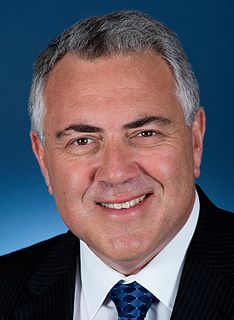A Quote by Kevin Brady
If we were starting from scratch, there's no question a simple retail consumption tax with protections for those with lower incomes would drive the economy the best and be the simplest to administer.
Related Quotes
It is easier to start taxes than to stop them. A tax an inch long can easily become a yard long. That has been the history of the income tax. Would not the sales tax be likely to have a similar history [in the U.S.]? ... Canadian newspapers report that an increase in the sales tax threatens to drive the Mackenzie King administration out of office. Canada began with a sales tax of 2%.... Starting this month the tax is 6%. The burden, in other words, has already been increased 200% ... What the U.S. needs is not new taxes, is not more taxes, but fewer and lower taxes.
I support both a Fair Tax and a Flat Tax plan that would dramatically streamline the tax system. A Fair Tax would replace all federal taxes on personal and corporate income with a single national tax on retail sales, while a Flat Tax would apply the same tax rate to all income with few if any deductions or exemptions.
Barack Obama is talking about cutting taxes. On net, he is a tax cutter. But the difference between Obama and John McCain is that Obama is raising some taxes on families, for example, with incomes over $250,000. Now, that amounts to about 2 percent, the richest 2 percent of American households. And even with those tax changes, even with all of the tax changes Obama's talking about, taxes will be lower under Obama than they were under the Clinton years.
We have legislated to protect the public from tax rises and guarantee incomes for pensioners, so enshrining in law more protections for consumers, commuters and investors is possible. Enshrining these rights into law would mean that any future government which wanted to reverse this would have to go through the primary legislative process.
We need to lower tax rates for everybody, starting with the top corporate tax rate. We need to simplify the tax code. The ultimate answer, in my opinion, is the fair tax, which is a fair tax for everybody, because as long as we still have this messed-up tax code, the politicians are going to use it to reward winners and losers.
Because tax cuts create an incentive to increase output, employment, and production, they also help balance the budget by reducing means-tested government expenditures. A faster-growing economy means lower unemployment and higher incomes, resulting in reduced unemployment benefits and other social welfare programs.
If top marginal income tax rates are set too high, they discourage productive economic activity. In the limit, a top marginal income tax rate of 100 percent would mean that taxpayers would gain nothing from working harder or investing more. In contrast, a higher top marginal rate on consumption would actually encourage savings and investment. A top marginal consumption tax rate of 100 percent would simply mean that if a wealthy family spent an extra dollar, it would also owe an additional dollar of tax.
I argue that in the long run, the US would be on a far more financially secure footing if we recalibrate how we spend about two-to-three percent of the country's GNP, using state and federal taxes to create pools of money for spending on America's poor - which would, as numerous economists have argued in recent years, create virtuous spending circles, since those on lower incomes spend more of each extra dollar in their possession than do those on higher incomes.
Thing we're trying to add to this is that lower corporate tax rates as we try and spur the economy. So that's where the Donald Trump attention is. The president's attention is on the middle class, making sure that's simple, fair and better. And then on the corporate tax rate, to try and get folks to invest in America again. His focus has not been on the impact on the top 1 percent.

































